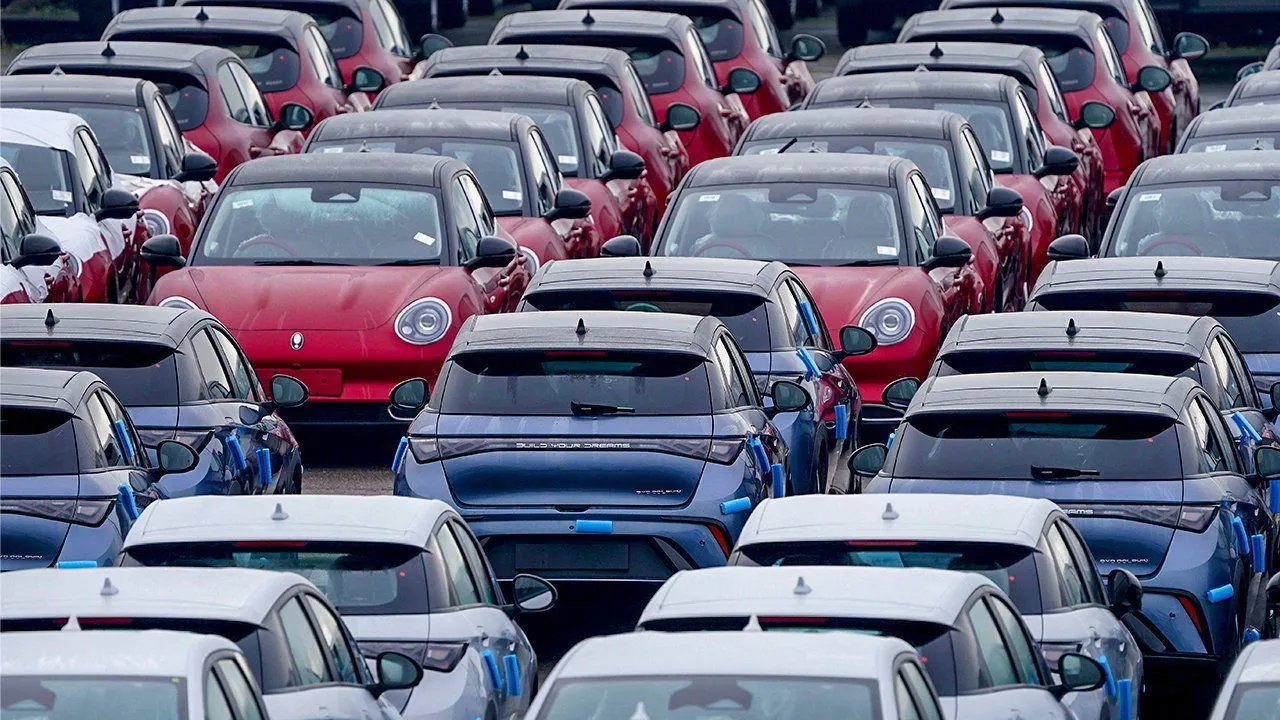BYD clearly hopes to pitch its vehicles as aspirational. But their real allure is that they are affordable. One model on display, the Dolphin, sells for around £25,000 ($33,000); British car reviewers have called the pricing “attractive” and “impressively low”. What really worries BYD’s Western rivals is that there is plenty of room for prices to fall. In China the Dolphin sells for 99,800 yuan, or just over £10,000. An analysis by Rhodium Group, a consultancy, found that BYD could cut its prices in Europe by 30% and still make the same profit per car that it does in China.
Consumers are gradually cottoning on to the appeal of Chinese EVs. Seeing an Ora, Maxus, MG or BYD marque on the road in Britain still feels noteworthy. On current trends, that won’t be the case for long. Chinese brands now make up around 10% of new EV sales in Britain, up from around 3-4% five years ago (see chart). Those figures, if anything, understate China’s increasing role in the car market because Western brands are also shifting carmarking to China. According to data from Jato Dynamics, an automotive-research firm, 22% of EVs registered in Britain (and 7.5% of all cars) are now made in China.
…
Thankfully, Britain’s new Labour government has so far largely leant away from such protectionism. Jonathan Reynolds, the business secretary, said in July that he was not planning to ask the independent Trade Remedies Authority (TRA) to investigate Chinese EVs, a necessary first step towards tariffs. Britain’s own car industry, which can also demand an investigation, has held off, too.
Why the different approach? After all, Labour ran for election on a “securonomics” platform that takes explicit inspiration from President Joe Biden’s economic policies. The main motivation is likely to be fear of retaliatory tariffs. China is a big export market for high-end producers like Rolls-Royce, Jaguar and Bentley, which make up a big chunk of Britain’s car industry. Losing the market for Chinese tycoons would hurt. And China would be unlikely to limit its retaliation to the car industry. Scottish salmon and whisky might be juicy targets; China buys lots of both products and Labour is loth to risk alienating voters north of the border.



British car reviewers need to take a good long look at themselves.